Page 78 • (1,373 results in 0.017 seconds)
-

thinking about joining? At school, you are not going to learn everything you would ever need in real life. But it’s crucial to know in which area you should be digging deeper. The [MSMA] program is presenting a great opportunity to learn a solid foundation and empower you with resources. Take great notes so you know where to search when you deal with questions at work. Become a lifetime learner and focus your efforts on understanding the algorithms behind research/analytics techniques. Read Previous
-
argument, that the interest rate should be left alone for now, was developed in concert with economics majors Drew Gardner, Amy Spieker, Justin Peterson and Kelby May. The argument eventually won the day as the group debated into the afternoon. Debates like this, whether as a learning tool or the real thing, are what make economics exciting, Gould said. “It’s not like there is one right answer in economics,” he said. “Economics really forces one to rely on their thinking skills.” During the conference
-
half, so now the average is about eight years old. This is, in part, because the university has changed its way of thinking when it comes to acquiring and using maintenance vehicles. “We used to ask ourselves ‘how much can we spend for a vehicle?’ We’d try to save the university money by acquiring older ones,” Kohler said. “Now we ask ourselves ‘what is the cost of the whole life of the vehicle?’” For Kohler, that means spending more money upfront on, say, a Prius or an all-electric maintenance van
-
November 10, 2008 Students need not worry about financial aid If there’s one message Financial Aid Days offered last week, it’s don’t worry. Students who already secured financial support for the 2008-2009 school year will still receive there support packages for next semester, said Kay Soltis, director of Financial Aid.“That’s all done,” she said. “What students need to be thinking about is what do I need to do for next year.” More than 90 percent of PLU student receive some sort of financial
-
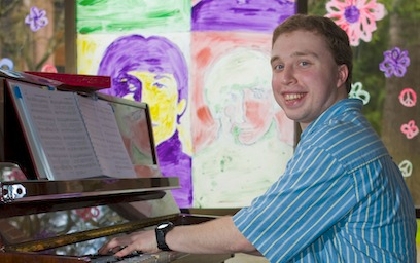
June 4, 2009 Embracing the ‘bigger questions’ and living with a true sense of joy CALLING ANY UNDERGRADUATE an expert in spirituality might be an overstatement. But in speaking with Timothy Siburg, it is abundantly clear that he has done some deep thinking about the nature of spirituality at PLU. And he has some serious credibility. What are the ‘bigger questions’ Timothy Siburg learned to ask at PLU? Last summer, he was one of only 50 undergraduates in the nation invited to attend the annual
-
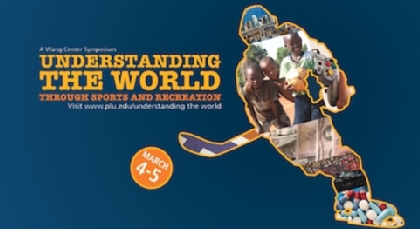
since 2003 – its reputation and reach continues to grow with each event. “We want to be able to have broad conversations on global issues,” said Neal Sobania, executive director of the Wang Center for Global Education. “That is what the symposia have always been about – to get students to engage with the experts in the field.” The overarching goal of PLU’s biennial international symposia is to stimulate serious thinking about contemporary issues and to provide a forum for the campus community and
-
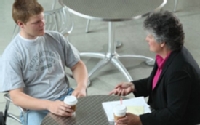
August 5, 2010 BUSA 201: Value Creation in the Global Environment Name: Steven Mattich Hometown: Olympia, Wash. Major: Undeclared, leaning Business or Economics Professor: Carol Ptak, distinguished executive in residence Steven’s advice to first-year students: “If you want to check out a class that you are thinking about taking in the next semester, I don’t think there’s a teacher at PLU who would mind if you sat in on their class for the day.” When Steven Mattich heard about the exams he would
-

April 11, 2011 Branding PLU’s Hebrew Idol By Chris Albert In its fourth season, Antonios Finitsis says the show just keeps on growing. This year, Finitsis, assistant professor of religion, worked closely with the Digital Media Center’s Nick Butler to revamp the Hebrew Idol logo. PLU’s Hebrew Idol is in its fourth year. This year’s finalists are “Absalom: True Confessions,” “Samson: With a Hero like this Who Needs Villians?,” and “Jephthah’s Daughter.” “I kept thinking I had to be more
-
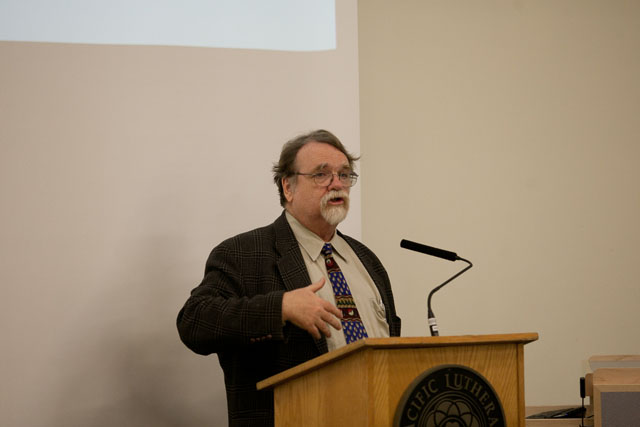
keynote address on three problems in food ethics from Paul B. Thompson, the W.K. Kellogg Chair in Agricultural, Food and Community Ethics at Michigan State University. About 50 students, staff, professors, and community members turned out for the event, including junior Political Science and Global Studies double major Kenny Stancil. “Food is just one of my general academic interests,” Stancil said. “I was intrigued when he pointed out both Singer and Sen’s frameworks for thinking about food ethics
-
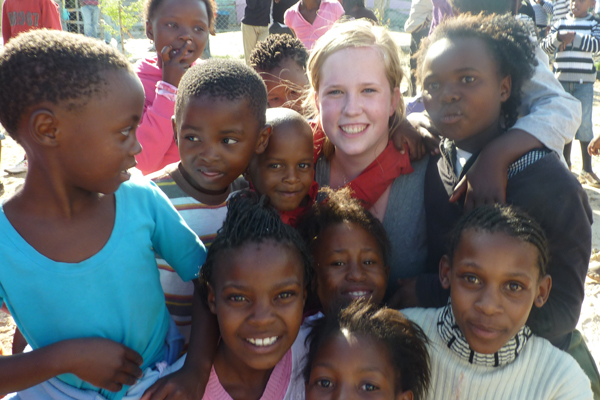
, Johnston has studied in China, Switzerland, South Africa and a combined program to Argentina and Antarctica. After four trips to five continents, Johnston still graduated on time with a double major. Magna cum laude, in fact. “I didn’t think it would be four times. I was thinking once, maybe twice, if I was lucky,” she said. Her secret? January Term, the one-month mini-semester between fall and spring. She spent two J-Terms studying away, plus part of a summer. She also completed a semester-long
Do you have any feedback for us? If so, feel free to use our Feedback Form.


